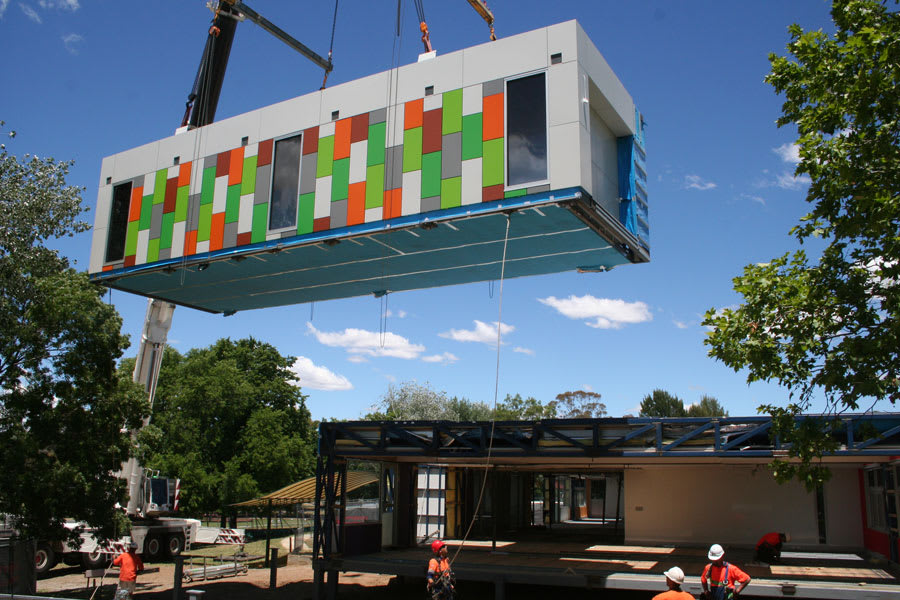META PrefabAus Hub launched
The following is a media release which accompanied the launch of the META PrefabAUS Hub at the PrefabAUS Conference 2014.
Australian building firms face lagging behind global competitors, with prefabricated housing an untapped market for local manufacturers, accordingly to META Managing Director Zoran Angelkovski.
META, a collaborative network of engaged manufacturing businesses and researchers, together with PrefabAUS, will determine how Australia can transform its construction industry to a smarter, leaner manufacturing mind-set through the launch of META’s PrefabAUS Hub.
“A primary objective of the hub is to identify how our local construction industry can transform and compete against imported products in terms of quality, value, and speed,” Mr Angelkovski said.
“the hub participants will grow prefabricated housing through development of new architectural design thinking, innovative techniques and processes and work towards advanced manufacturing within the field.”
Prefabricated housing is manufactured off-site in advance, usually in simple sections that can easily be shipped and transported. The Australian construction industry creates more than $150b contribution to GDP (10%) of which the prefabricated housing sector is just $4.6b (3%). The sector is expected to grow at more than 5% per annum compared to the overall industry at 2.3% through to 2023.
Peter Newman, Professor of Sustainability at Curtin University and board member of Infrastructure Australia says the Australian construction industry is outdated in its design of new developments.
“The past 50 years of urban development in Australia has been based around building unsustainable car-dependent suburbs on the urban fringe. With Australia’s population growth expected to see a 60 per cent increase to 37.6 million people by 2050, the industry needs to look to more cost effective and well designed inner city developments at higher densities.
“Prefabricated housing is a next generation housing construction industry, a game changer in cost of housing, competitiveness, efficiency and productivity. Without leveraging this technology, we will see Australia going backwards as overseas firms meet the needs of our local market,” Professor Newman said.
Sarah Backhouse, CEO of PrefabAUS, architect and Melbourne University researcher says there is strong potential for Australia to develop a new manufacturing base centred on 21st century construction innovation and quality.
“In Japan and across Europe, prefabricated housing is widely accepted as a quality alternative to traditional construction due to its speed of delivery, design options and energy efficient choices. This represents exciting opportunities for Australia to innovate as our prefabricated housing industry continues to grow and span not only individual houses but also medium and high density solutions while ensuring we remain globally competitive,” Ms Backhouse said.
Jan Gyrn, from leading Australian prefabrication developer Modscape, says there is huge potential for local manufacturers to adapt to this growth market while providing consumers with innovative designs and choice.
“Over the last decade, we have seen prefabricated housing transition from a temporary building idea to a sophisticated, design-led alternative to traditional construction.
“We have worked on exciting commercial and residential projects which are a far cry from the days of aesthetically boring prefab units and will challenge people’s conceptions of modular buildings.
Today we can leverage the latest technology and manufacturing methods to deliver projects such as Ponyfish Island Bar in Melbourne, which shows innovation and artistic style within a logistically complex location.
By using a modular base we can create almost any configuration of space at any size to suit individual styles, all the while delivering projects at less cost with minimal disturbance to the surrounding environment,” Mr Gyrn said.
Lead image credit: NBRS + Partners.
